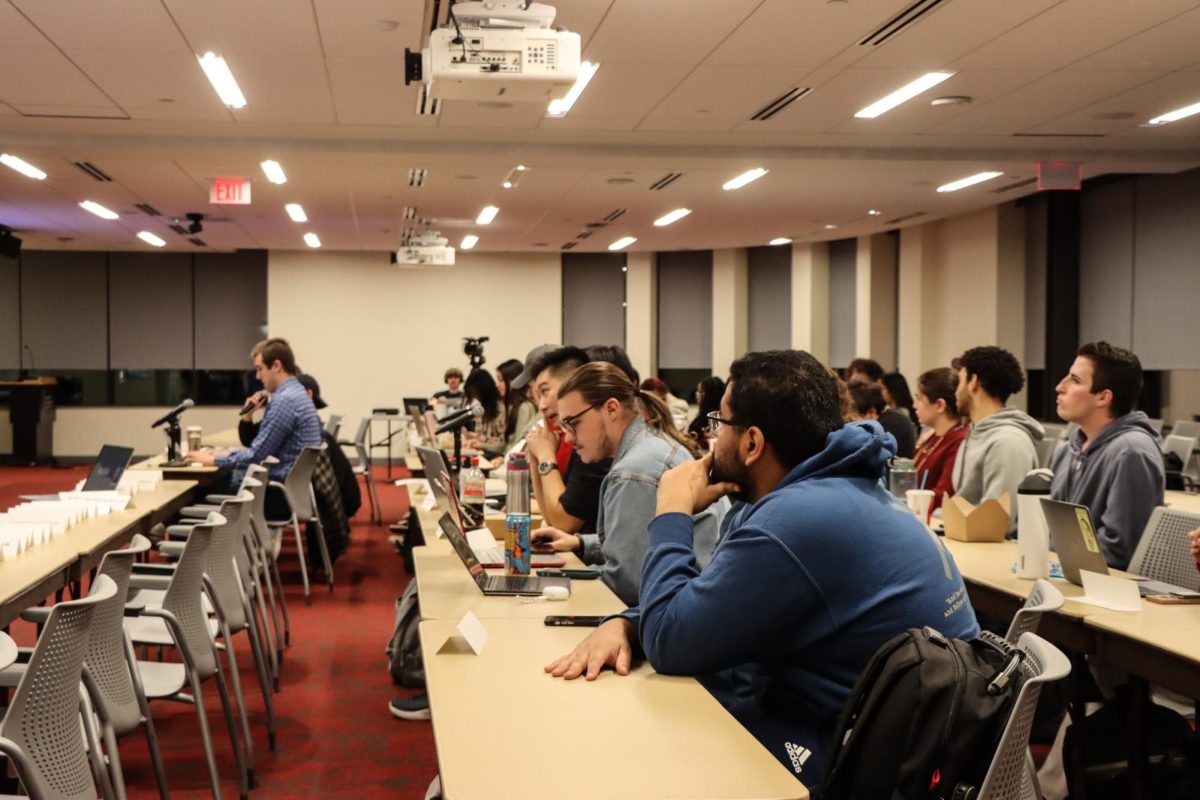Last week, my 20-year-old car needed a repair I’ve been dreading since day one: a new clutch. My mechanic quoted me $1,500, deeming it totaled. I couldn’t justify spending that kind of money on a car that was already living on borrowed time.
My car had decided to descend to the afterlife at the worst possible time. The COVID-19 pandemic caused a global chip shortage, meaning there’s also a current global car shortage.
One car uses about 100 semiconductor chips to perform functions such as monitoring tire pressure and managing the battery, infotainment system, backup camera, safety features and hundreds of other essential tasks. Suffice to say they’re essential to the production of a car.
Pre-pandemic, we were already seeing pressure on semiconductor plants to produce over capacity due to the rise of more technologically-advanced products such as electric vehicles and cellphones enabled with 5G connectivity. The pandemic exacerbated this when working from home became the new norm, prompting consumers to go out and purchase high-tech laptops and entertainment devices such as PS5s. This shortage had a lasting effect on the availability of semiconductor chips, and the car market still hasn’t recovered.
After receiving quotes from several different dealerships, I was looking at higher selling prices, insane markups politely dubbed “market adjustment” fees and being forced into paying for all sorts of features that would normally be optional. One dealer attempted to sell me nonelective all-weather floor mats for $1,000 on top of the $2,500 markup I was already paying. I wonder if this salesman would have made this insulting offering to a man.
So, here’s where sexism comes in: paying over the sticker price on a new car is the new normal, but it’s even more so for women. Buying a car in a normal market is an intimidating experience for me as a woman, as I am constantly patronized to the point that I question whether or not I’m getting the same rate as my male peers. And today’s car shortage exacerbates it.
I initially visited a local dealership to get a feel for the market. I could tell the salesman was getting irritated by my questions about safety, reliability, gas mileage, paint color, interior upholstery and the car’s infotainment system. Oftentimes, salespeople prefer to discuss the engine’s performance. At times, it felt like the salesman wasn’t even trying to sell me the car. He never gave me a walkaround, never provided any vehicle specifications and never explained any features without my prompting. It was almost like he saw me as a waste of his time.
I spoke to several salespeople at several different dealerships out-of-state, and each was reluctant to talk finances with me over the phone. This struck me as predatory, because it eliminates my ability to shop around to compare rates and it limits me to local dealers. I suspect it had something to do with my female voice. Salespeople hear my voice over the phone and assume I’m a young woman and will be easy to rip off once I’m in the store. They may assume I know little about cars and don’t know how much the car is actually worth.
At one dealership, I was quoted over $31,000 (selling price — meaning this didn’t include taxes and fees) for a 2022 Honda Civic LX. The same 2022 Honda Civic LX that boasted of a budget-friendly manufacturer-suggested retail price of just $22,350. That means that after taxes and fees, I’d have to part with $33,000. Over $30K for a compact sedan in the economy car sector. I felt insulted at this proposal and I wondered if they would have said the same to a man in my peer group.
As if the car-buying experience wasn’t enough of a headache, I still had to sell my old “fixer-upper.” Armed with anecdotal experience from friends, I knew I would have a hard time selling the car on my own. So, I enlisted the help of my boyfriend. We posted the same link on Facebook Marketplace including the same photos of the car, same vehicle specifications and similar descriptions. I didn’t get a single response in the first half hour, but he received a generous handful. With so much demand and only one car to sell, I was confident he would be able to sell the car at a much higher price than me.
Unfortunately, car sales were a corrupt and sexist business model even before the pandemic. Pair that with the global car shortage, and women are taking home far less money than their male counterparts. It’s just another manifestation of the pink tax: women end up paying more for the same products and services compared to men.
Julia Oktay can be reached at [email protected] and followed on Twitter @juliadoktay.




















